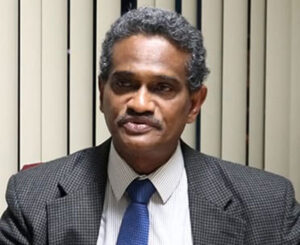Guyana makes no use of UNDP report to avoid corruption, abuse in oil sector
In response to a request in 2016 to help Guyana arrive at good legal, regulatory, contractual and fiscal measures needed to keep corruption at bay, the United Nations Development Programme (UNDP) had commissioned an analysis to be done on the state of the nation’s governance systems.
The subsequent report on the review done was called “Rapid Analysis of the State of Readiness of Guyana’s Hydrocarbon Regulatory Framework.” It was produced by Trinidadian energy strategist, Anthony Paul.
But, after four years of being in possession of this document, which proposes close to 100 critical recommendations on how Guyana must safeguard itself, nothing had been done.
That report which was perused for years by Kaieteur News, was keen to note that the requirements and expectations of government to manage the sector, especially when one considers the magnitude of the resources discovered, are enormous.
It notes that requests for new licences and exploration have accelerated, in spite of the drop in oil prices. In light of this, Paul noted in his analysis that reviewing, approving, and overseeing the implementation of the field development plans for oil projects and subsequent production will require very significant human and other resources.
Paul pointed out, however, that Guyana has a very limited capacity in this area, while adding that its laws, contracts and institutions are outdated and under-resourced to meet the demands of upcoming activities.
The industry expert was keen to note that improving the foundational components of the country’s petroleum governance system, that is to say, its legal and institutional frameworks are fundamental to managing oil money successfully. If the country fails in this regard, Paul noted that Guyana would be left wide open to risks of corruption and abuse as well as losing very significant value.
Among his many recommendations was a call for the frequent use of Guyana’s parliamentary sectoral committees on natural resources and economics. Paul stressed that these committees can be effective regulatory tools for the sector.
In capturing value, Paul said that Guyana needs to implement systems which will allow it to make the proper decisions on various issues such as the right rate of production and depletion of the resources, getting the best possible contract terms for Guyana, ensuring the actions of companies are done in an environmentally and socially responsible manner, and ensuring there is maximum capacity development among locals to enable their participation.
In managing revenue, the Trinidadian Strategist said that Guyana would also have to urgently put mechanisms in place, which will allow for the effective collection of all oil revenue due to the State, while ensuring that there is prudent spending by enhancing infrastructure, services and capacity for future sustainability along with ensuring savings for future generations.
Further to this, Paul was keen to note that the authorities of the day must make every effort to ensure that it is informing Guyanese of how and when they are making decisions about the oil resources. He said that it is required of the citizenry to make sure that these decisions are in their best interest.
He said, too, that Guyanese must demand that the government implements systems to ensure transparency and accountability for each institution tasked with spending the oil money and regulating industry performance.
Overall, Paul’s report highlights the need for Guyana to make urgent reforms, otherwise, the nation stands to lose billions more, and that is outside of what is already lost by way of the lopsided Stabroek Block deal.






















